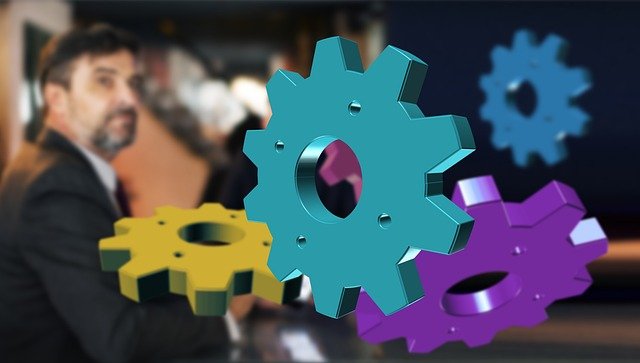Cultivating Career Resilience: Strategies for Thriving in Uncertain Times
In an era marked by rapid technological advancements and shifting economic landscapes, the concept of career resilience has emerged as a critical skill for professionals across industries. This article delves into the art of building career resilience, exploring innovative approaches to navigate uncertainty and thrive in an ever-evolving job market.

The Evolution of Career Resilience
Career resilience is not a novel concept, but its importance has grown exponentially in recent years. Historically, career paths were often linear, with employees remaining loyal to a single company for decades. However, the rise of globalization, technological disruption, and changing workforce demographics have reshaped this paradigm.
The 1990s marked a turning point, as downsizing and restructuring became commonplace, forcing professionals to adapt to new realities. This shift catalyzed the recognition of career resilience as a crucial skill. Today, with the average person changing jobs 12 times during their career, resilience has become indispensable for navigating the complexities of modern work life.
Understanding the Pillars of Career Resilience
At its core, career resilience is built upon several key pillars. The first is adaptability – the ability to pivot and embrace change. This involves continuously updating skills and being open to new opportunities, even if they diverge from one’s original career path.
Self-awareness is another critical component. Resilient professionals have a deep understanding of their strengths, weaknesses, and values. This self-knowledge allows them to make informed decisions and align their career choices with their personal goals and aspirations.
Networking and relationship-building also play vital roles in fostering resilience. A strong professional network provides support, opportunities, and diverse perspectives, all of which are invaluable during times of career transition or uncertainty.
Developing a Growth Mindset for Career Agility
Central to career resilience is the cultivation of a growth mindset. This psychological approach, pioneered by psychologist Carol Dweck, posits that abilities and intelligence can be developed through effort, learning, and persistence.
In the context of career development, a growth mindset manifests as a willingness to take on challenges, learn from failures, and persistently pursue improvement. Professionals with this mindset view setbacks as opportunities for growth rather than insurmountable obstacles.
To foster a growth mindset, individuals can practice reframing negative experiences, seeking feedback, and setting learning goals alongside performance objectives. This approach not only enhances resilience but also drives innovation and creativity in one’s career journey.
The Role of Continuous Learning in Building Resilience
In an age where skill obsolescence is a genuine concern, continuous learning has become a cornerstone of career resilience. The half-life of skills is shrinking, with technical skills becoming outdated in as little as 2.5 years.
Resilient professionals adopt a proactive approach to learning, constantly seeking opportunities to expand their knowledge and skill set. This might involve formal education, such as pursuing advanced degrees or certifications, or informal learning through workshops, webinars, and self-directed study.
Moreover, cross-skilling and upskilling have emerged as powerful strategies for building resilience. By diversifying their skill set, professionals can create multiple career pathways, reducing vulnerability to industry-specific disruptions.
Embracing Entrepreneurial Thinking
The entrepreneurial mindset, traditionally associated with business founders, has become increasingly relevant for all professionals seeking to build career resilience. This approach involves viewing one’s career as a venture, with oneself as the primary asset.
Entrepreneurial thinking in career development manifests as proactivity in identifying opportunities, taking calculated risks, and creating value within one’s role or industry. It also involves developing a personal brand and marketing oneself effectively in the job market.
By adopting this mindset, professionals can become more adaptable to changing market conditions and better positioned to create opportunities for themselves, rather than solely relying on existing structures.
Leveraging Technology for Career Advancement
Technology plays a dual role in the context of career resilience. While it can be a source of disruption, it also offers powerful tools for career advancement and skill development.
Online learning platforms, professional networking sites, and career management apps have democratized access to knowledge and opportunities. Resilient professionals harness these technologies to stay informed about industry trends, connect with peers and mentors, and showcase their expertise to a global audience.
Furthermore, emerging technologies like artificial intelligence and data analytics are creating new career paths and transforming existing ones. Staying abreast of these technological advancements and understanding their implications for one’s industry is crucial for maintaining career resilience in the digital age.
Cultivating Emotional Intelligence in Professional Settings
Emotional intelligence (EI) has emerged as a critical factor in career success and resilience. In an era where soft skills are increasingly valued, the ability to understand and manage one’s own emotions, as well as those of others, can significantly impact professional outcomes.
Research indicates that individuals with high EI are better equipped to handle workplace stress, communicate effectively, and navigate complex interpersonal dynamics. These skills are particularly valuable during times of career transition or organizational change.
Developing emotional intelligence involves practices such as self-reflection, active listening, and empathy-building exercises. By honing these skills, professionals can enhance their adaptability, build stronger relationships, and make more informed decisions in their career journey.
Conclusion: Empowering Career Resilience for the Future
As we navigate the complexities of the modern job market, cultivating career resilience emerges as a fundamental necessity. By embracing continuous learning, adopting an entrepreneurial mindset, leveraging technology, and developing emotional intelligence, professionals can build the resilience needed to thrive in uncertain times.
The journey towards career resilience is ongoing and unique to each individual. It requires self-reflection, adaptability, and a commitment to personal growth. As we look to the future, those who invest in building their career resilience will be best positioned to seize opportunities, overcome challenges, and craft fulfilling professional lives in an ever-changing world.






